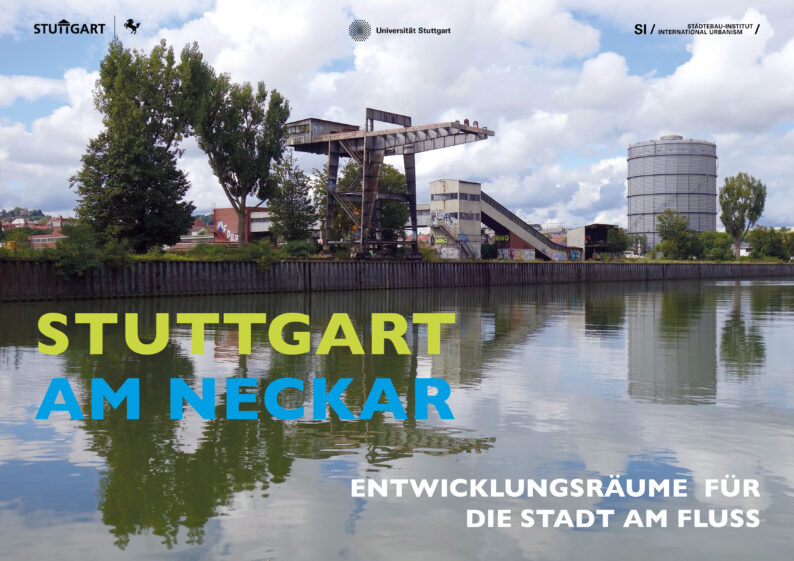Stuttgart am Neckar. Entwicklungsräume für die Stadt am Fluss. Integrierte Konzeptstudie für eine nachhaltige urbane Transformation des Stuttgarter Neckartals (Stuttgart 2021)
Task
As the Energy Transition also raises the question of its local urban transformation, this project focused on conceptual opportunities to integrate infrastructure (energy, traffic, logistics) and spatial development along the Stuttgart Neckar Valley: a combination of the “River City” and “Urbanisation of the Energy Transition” concepts.
Current situation
The Neckar valley is both the central landscape element and the industrial, energy and traffic infrastructural “artery” of the city region. In terms of liveability and urban and ecological quality, however, it is rather an inner periphery. Moreover, the future development of the existing energy infrastructures is a contested topic with concurring interests regarding the energy industry’s needs and urban development objectives.
Research Project WECHSEL (2017-2019)
This thematic dichotomy was first addressed within the WECHSEL project and then turned into a dialogue process with experts from energy system analysis, urban planning and sociology, the municipal government, and civil society.
Urban Concept “Stuttgart am Neckar” (2020-2021)
This dialogue process resulted in creating an integrated urban concept that expresses an adaptive strategy of turning potential collisions and actual conflicts into an ongoing dialogue process that aims at fruitful compromises.
This study is the first concept to link existing and new urban development and landscape architectural projects along the entire Stuttgart Neckar valley. It offers an integrative approach that brings together historical context, current framework conditions and creativity.
While identifying ten potential transformation areas (164 ha of size in total), the study addresses the Neckar Valley as a major area for urban development in Stuttgart. For the sake of strategic and thematic quality control, the study links the essential scale and planning levels from the overall Neckar valley area via focus areas to city quarters and individual neighbourhoods; secondly, it proposes programs of urban activities and functions tailored to each individual neighbourhood; and thirdly, a concrete energy concept serves as an illustration for the assessment of climate protection goals at neighbourhood level.
The study offers a substantial basis for a broad expert and public dialog on the future urban development of the Stuttgart Neckar Valley, both within the context of the Stuttgart Urban Development Concept STEK 2035+ (Stadtentwicklungskonzept STEK 2035+, which is currently being developed) and in regard of future urban planning competitions and implementation projects.
A PDF version is available here:
lhs+si 2021_konzeptstudie stuttgart am neckar_web



